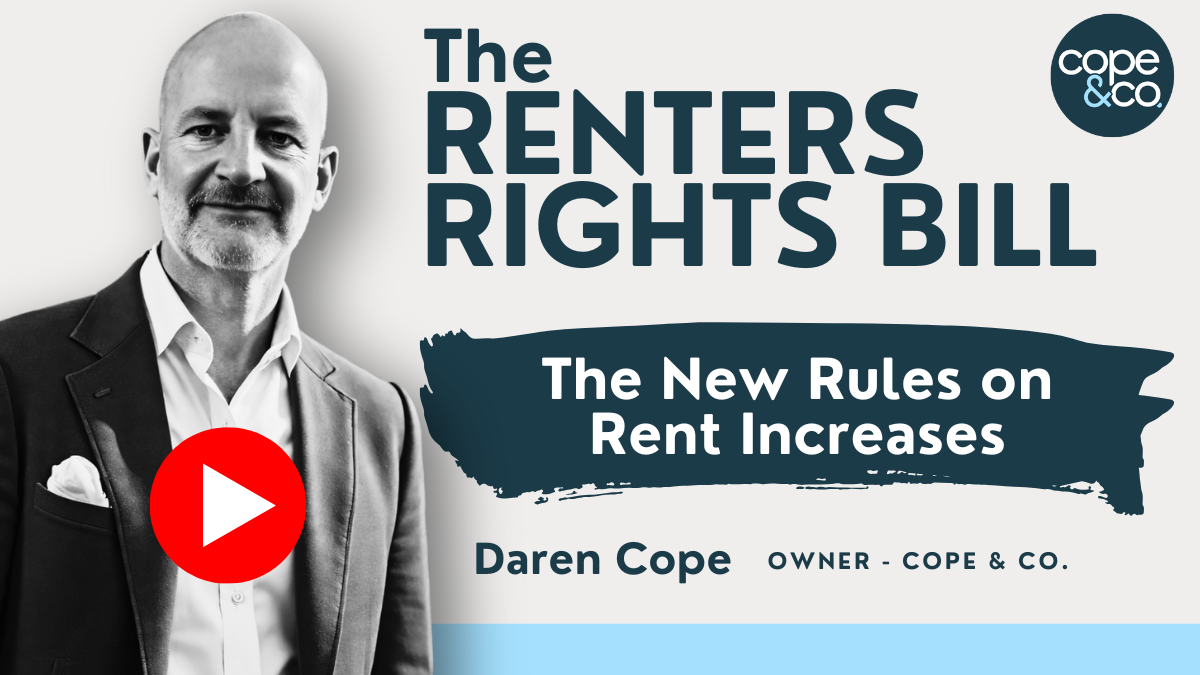With the Renters’ Rights Bill set to reshape the rental market, landlords must be strategic when setting rents. While offering a bargain may seem like a good idea, underpricing can backfire, limiting future increases and even lowering your property’s value. Now more than ever, pricing your rental correctly is key to protecting your investment
With the Renters’ Rights Bill on the horizon, landlords must be more strategic than ever when setting their rental prices. While much of the focus has been on avoiding overpricing, underpricing a property can be just as damaging. Setting rent too low at the start of a tenancy could limit your ability to adjust it later, reduce overall yield, and leave you struggling to cover rising costs.
How the Renters’ Rights Bill Will Change the Rent Increase Process
The Renters’ Rights Bill introduces significant restrictions on how and when landlords can increase rents, with a clear shift towards greater tenant protection.
Landlords will be required to give two months' notice for rent increases, rather than the current one-month requirement. This extended notice period provides tenants with more time to decide whether to challenge the proposed increase.
Tenants can appeal to the First-tier Tribunal at no cost, making it easier for them to contest rent adjustments.The First-tier Tribunal will continue to assess proposed rent increases based on what the landlord could reasonably expect to receive from a new tenant on the open market. However, under the new rules, the tribunal will only have the power to maintain or reduce the rent - it will no longer be able to increase it.
Currently, if the tribunal determines that the market rent is higher than the amount proposed in the notice, it has the discretion to raise it accordingly. This will no longer be the case under the Renters' Rights Bill, effectively removing any risk for tenants when challenging a rent increase.
Tenants have absolutely nothing to lose, as there will be no possibility of the tribunal setting the rent at a higher level than initially proposed. In addition, and arguably unfairly, any new rent determined by the tribunal will not take effect until the next rent payment date after the decision is made. The tribunal will also have the authority to delay a rent increase if they consider it would cause the tenant "undue hardship."
Why Underpricing Could Hurt Landlords in the Long Run
Many landlords assume they can start with a low rent and gradually increase it, but with these new restrictions, that approach is becoming increasingly risky. If a property is let significantly below market value, the opportunity to correct that mistake later will be severely limited.
With the potential of increased costs and new compliance obligations, underpricing could quickly erode profitability.
Beyond financial implications, underpricing may also affect tenant quality. While affordability is important, properties priced significantly below market rates may attract short-term renters who are less invested in maintaining the property. Higher turnover, longer void periods, and potential disputes over rent increases can create unnecessary headaches for landlords.
The Hidden Cost of Discounted Rent for ‘Good Tenants’ or Friends
Some landlords choose to offer reduced rent to long-term tenants, friends, or family members, believing that keeping a "good tenant" is worth the financial compromise. While stability is valuable, setting rent below market value can create serious financial consequences. Firstly, it may not be possible to adjust the rent later due to the new rent increase restrictions. Even if the landlord’s financial situation changes, or the market shifts, they may be legally bound to keep the rent low.
Additionally, a property’s rental yield directly impacts its valuation if sold as an investment. If a landlord decides to sell, potential buyers will assess the income potential of the property, and a below-market rent could make it a less attractive investment. This could reduce the sale price or limit the pool of interested buyers. By maintaining rent at market value, landlords preserve the investment appeal of their property, ensuring that when the time comes to sell, it can achieve its full potential value.
How to Set the Right Rental Price in a Changing Market
Given the evolving legal landscape, landlords must take a proactive approach to pricing their rental properties. A fair, market-aligned rent ensures financial sustainability while reducing the risk of disputes under the new system. To achieve this, landlords should:
- Conduct regular market analysis to ensure their rent reflects current conditions.
- Seek professional guidance to understand how legal changes affect pricing strategy.
- Avoid short-term pricing tactics, as long-term stability is now more important than ever.
At Cope & Co. we specialise in helping landlords navigate these complex changes. Our team provides expert rental valuations and market insights to ensure your property is competitively priced and compliant with the latest regulations.
If you're unsure how the Renters’ Rights Bill might impact your rental pricing strategy, get in touch today for expert advice. Pricing correctly now will help safeguard your investment for the future.

https://vimeo.com/1047840538



